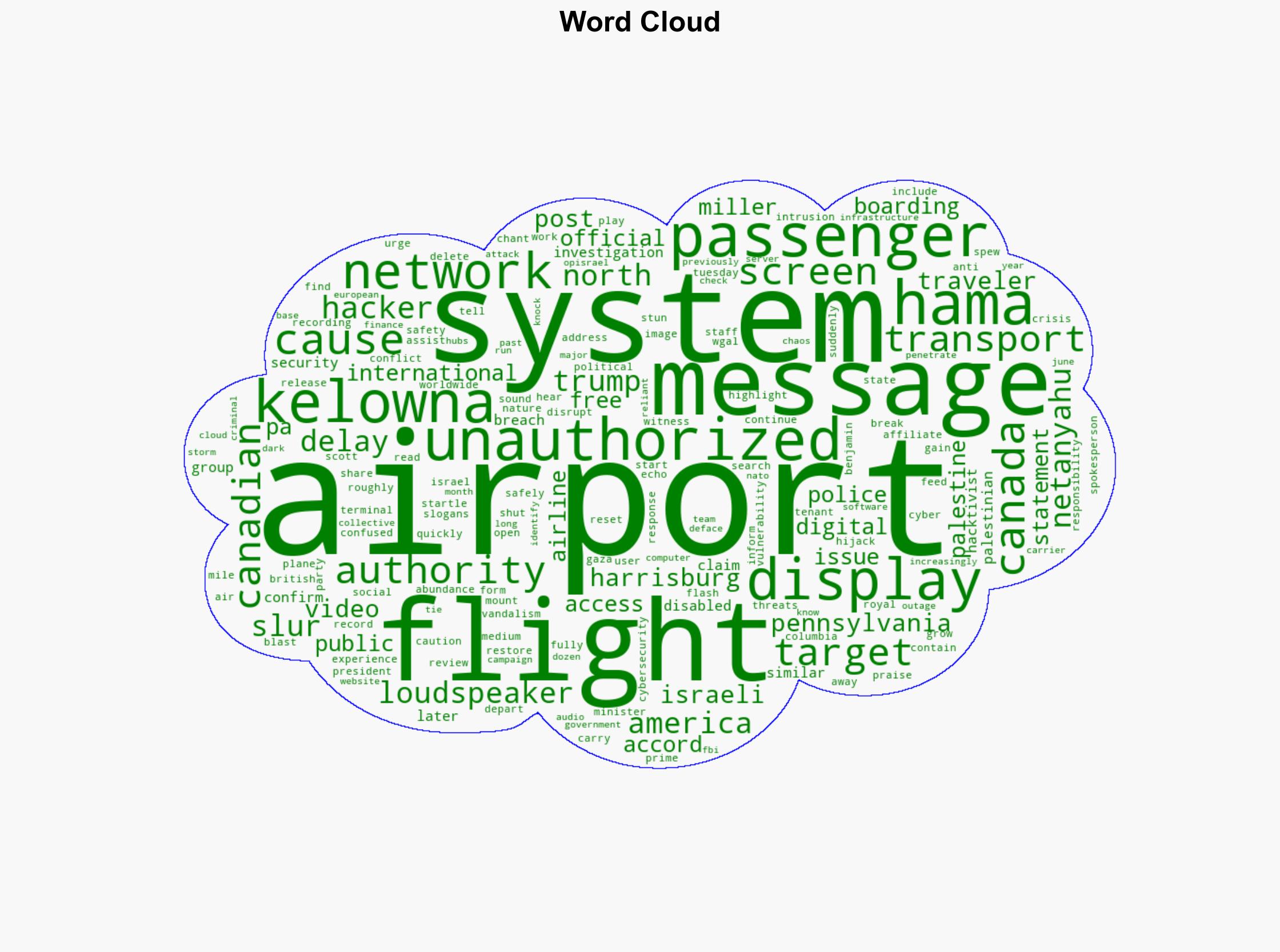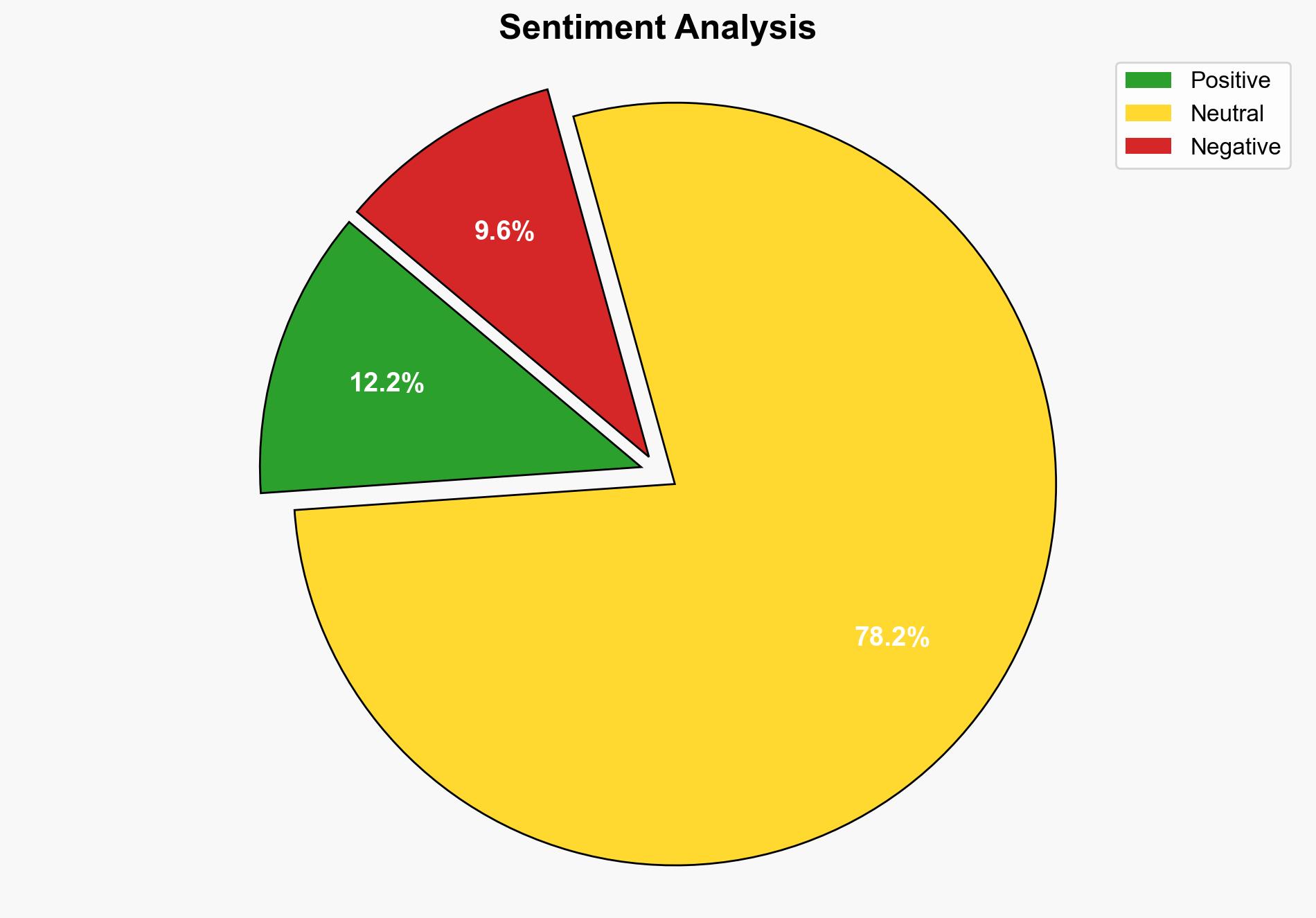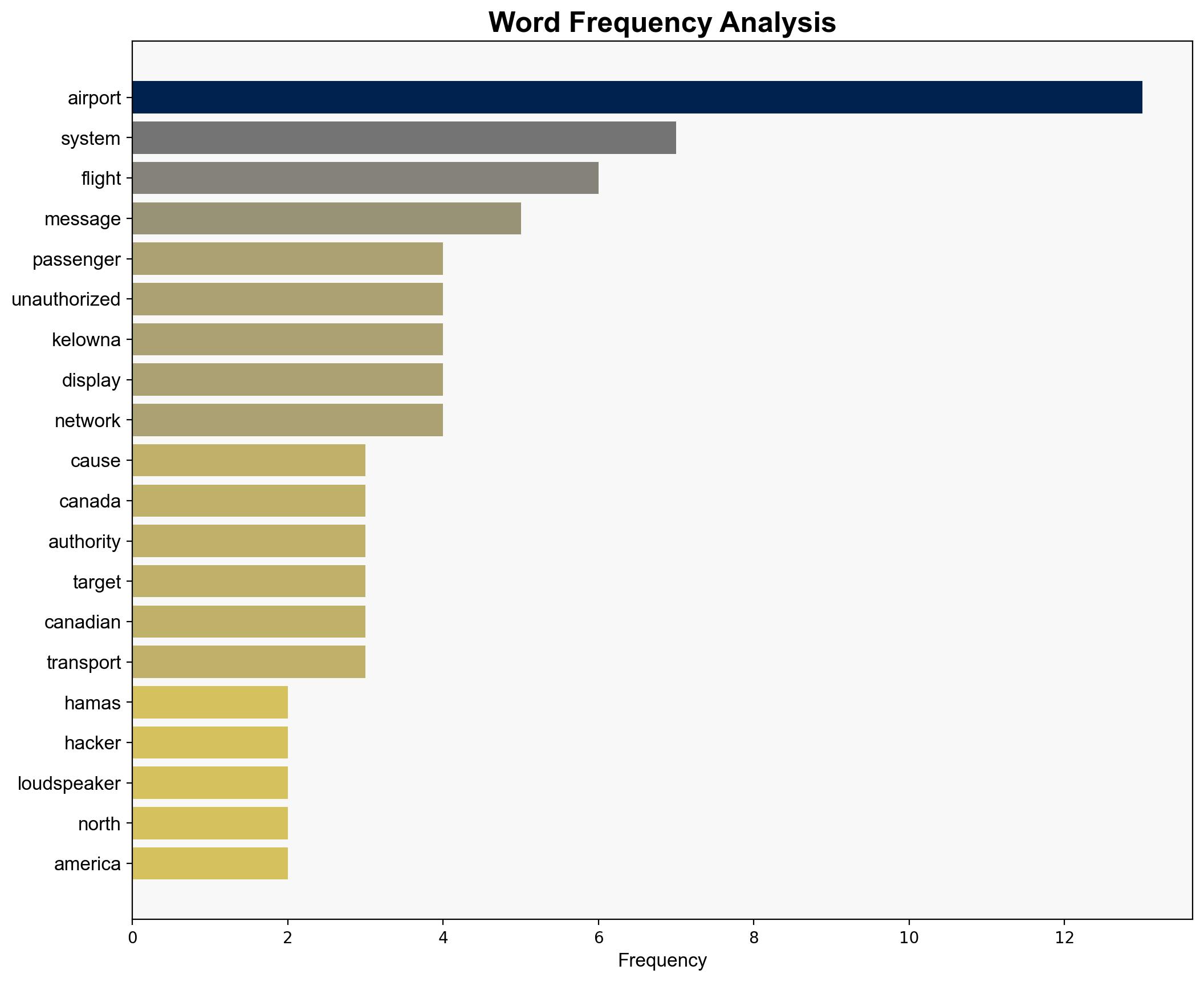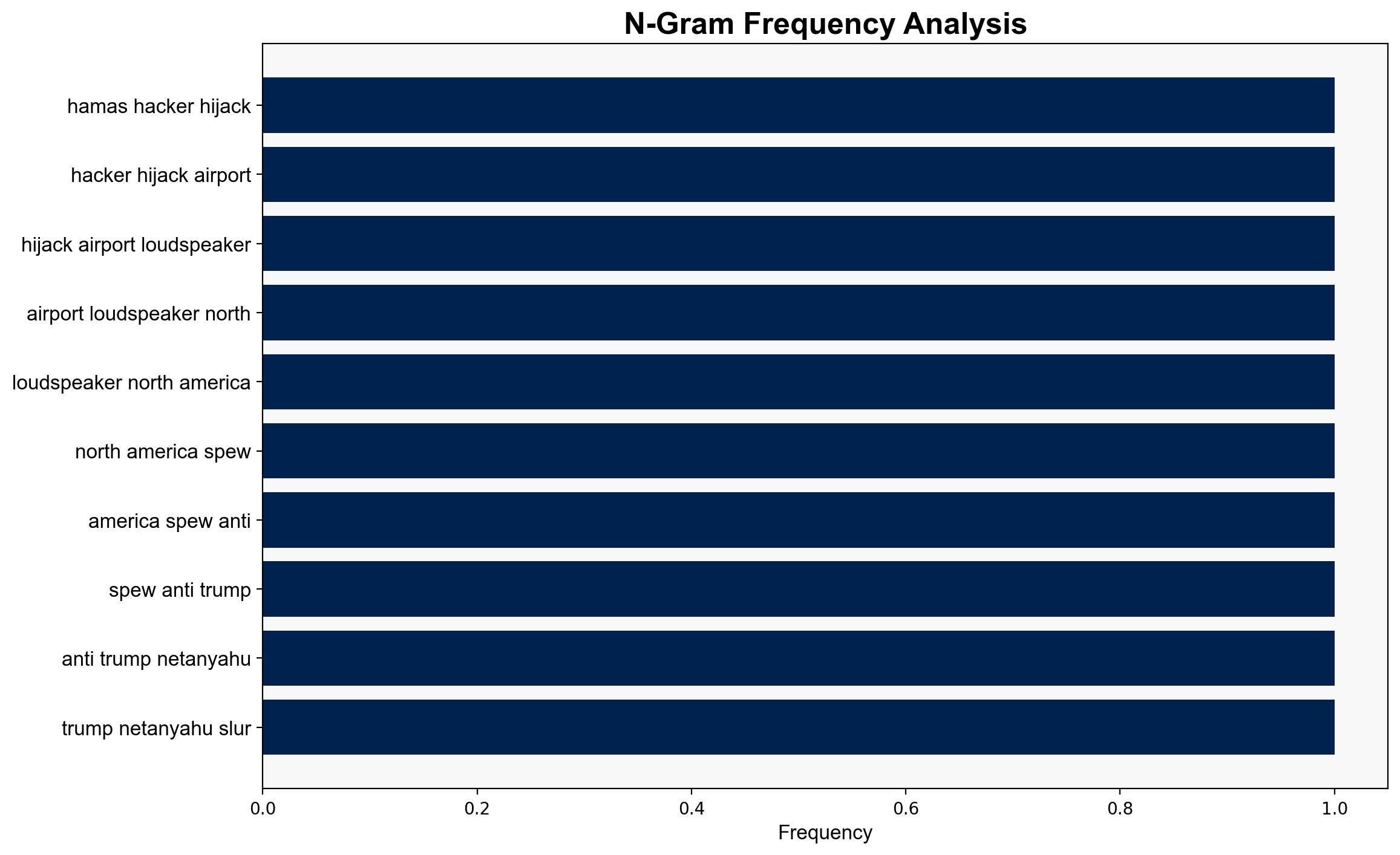Hackers hijack airport loudspeakers with pro-Hamas rants anti-Trump slurs across North America – New York Post
Published on: 2025-10-16
Intelligence Report: Hackers hijack airport loudspeakers with pro-Hamas rants anti-Trump slurs across North America – New York Post
1. BLUF (Bottom Line Up Front)
The most supported hypothesis is that a Palestinian hacktivist group, possibly linked to the ongoing Israel-Gaza conflict, executed a coordinated cyber intrusion targeting airport systems in North America. This hypothesis is supported by the group’s historical patterns and the nature of the messages. Confidence level: Moderate. Recommended action includes enhancing cybersecurity protocols at vulnerable infrastructure points and increasing international collaboration on cyber threat intelligence sharing.
2. Competing Hypotheses
Hypothesis 1: A Palestinian hacktivist group, potentially the “Dark Storm Team,” conducted the cyber intrusions as part of a broader campaign against Western and Israeli interests, leveraging the Israel-Gaza conflict as motivation. This is supported by the group’s known history of targeting similar systems and the content of the messages.
Hypothesis 2: An unrelated cybercriminal group exploited vulnerabilities in airport systems for opportunistic reasons, using politically charged messages as a diversion. This hypothesis considers the possibility of a false flag operation to obscure the true intent of the attack.
3. Key Assumptions and Red Flags
Assumptions:
– Hypothesis 1 assumes the attackers are ideologically motivated and have the technical capability to breach airport systems.
– Hypothesis 2 assumes the attackers are primarily motivated by disruption or financial gain, rather than political ideology.
Red Flags:
– Lack of concrete attribution to a specific group raises questions about the true identity and motives of the attackers.
– The simultaneous breaches across geographically distant locations suggest either a highly coordinated attack or a common vulnerability in airport systems.
4. Implications and Strategic Risks
The incidents highlight significant vulnerabilities in airport cybersecurity, posing risks to passenger safety and operational continuity. If unaddressed, these vulnerabilities could lead to more severe disruptions or be exploited by state actors. The psychological impact on travelers and potential economic repercussions for the aviation industry are notable. Geopolitically, such attacks could exacerbate tensions between pro-Palestinian and Western entities.
5. Recommendations and Outlook
- Enhance cybersecurity measures at airports, focusing on public address and flight display systems.
- Foster international cooperation for intelligence sharing on cyber threats, particularly those linked to geopolitical conflicts.
- Scenario Projections:
- Best Case: Rapid identification and neutralization of the threat actor, leading to improved cybersecurity standards.
- Worst Case: Escalation of cyber attacks targeting critical infrastructure, causing widespread disruptions.
- Most Likely: Continued sporadic cyber intrusions with limited but impactful disruptions.
6. Key Individuals and Entities
– Scott Miller (Airport spokesperson)
– Royal Canadian Mounted Police
– Canadian Air Transport Security Authority
7. Thematic Tags
national security threats, cybersecurity, counter-terrorism, regional focus




